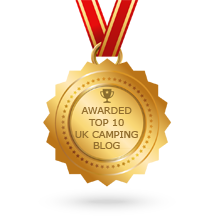WELLBEING | Find Your Happy – What I Discovered During My Year Long Search For Wellbeing
I’ve been on a personal quest recently to find out what makes me happy. Could your own wellbeing be influenced by some of the keys to happiness that I’ve discovered?
When I embarked on my year of self-discovery, I was already living by the mantra of ‘don’t be a dick’. I consider myself to be a kind and caring person and I’m generally positive and optimistic, but I still felt like there were things missing.

So, for the whole of 2017 I focused on living in the present and being more mindful – paying greater attention to the things I did, the experiences I had and the people I spent time with, which allowed me to evaluate how those things made me feel, not just emotionally, but in a physical sense too.
I feel more balanced, and am now happier, more relaxed and perhaps even more resilient than I’ve ever been.
In my year-long search for wellbeing, I found that my own happiness hinges on just 6 key things…

1. Greater engagement with the natural world
Mental health organisation Mind cites the importance of feeling more engaged with the world around you as a basis for good mental health. For some this may mean taking steps to avoid remaining socially isolated, for others like me, that has meant immersing myself and becoming even more aware of the natural world. Having a focus other than yourself and your everyday work-related stresses can help you find more peace.
Going for a walk and huffing my way up a mountain with the aim of reaching the trig point as quickly as possible is nowhere near as rewarding for me as walking mindfully; slowing down and focusing my attention on my surroundings, relaxing into the earth and letting nature soothe me.
Realising that a simple countryside walk can be so beneficial to me has been transformative.
From noticing the way that rays of sun fall through the canopy of trees, to looking out for fungi or simply stopping and listening to and attempting to isolate the various sounds I could hear. Walking in a more mindful and present way has helped to give me space and clarity and has helped me appreciate the natural world even more. Instead of focusing on stressful situations and anxiety-inducing thoughts, I’ve been able to step away from those things, and it’s had a calming effect on my brain.

Realising that a simple countryside walk can be so beneficial to me has been transformative, elevating walking and camping from activities that I sometimes choose to do, into activities that are vital for my wellbeing, which means I now regard them as priority activities.
For great tips on being more mindful when you’re outdoors, I highly recommend reading How to Connect with Nature by Tristan Gooley.
2. More quality time spent outdoors
Whilst it’s a known fact and pretty obvious that physical activity will make you sleep better, that’s actually not been the case for me in the past. When I did an 8 hour hike up Snowdon, despite feeling calm, happy and physically wiped out when I got back to my tent that night, I was still lying awake until the wee small hours, unable to switch off my brain and sleep.
For me sleeping well is a more complex issue concerning my state of mind rather than how active and physically tired I am.

The thing that determines how relaxed I am and therefor how well I can sleep, seems to be determined by where my awareness is at the time of doing whatever I choose to do outdoors.
By changing my focus, particularly on a more challenging walk, from the discomfort I feel or from worrying about the terrain or how much further there is to go, I have instead learned to focused on how nice it is to be outdoors, the sense of freedom it gives me, the beautiful scenery, breathing in lungfuls of clean air… In short, focusing on the many positives and never letting the negatives become bigger than an insignificant niggle.
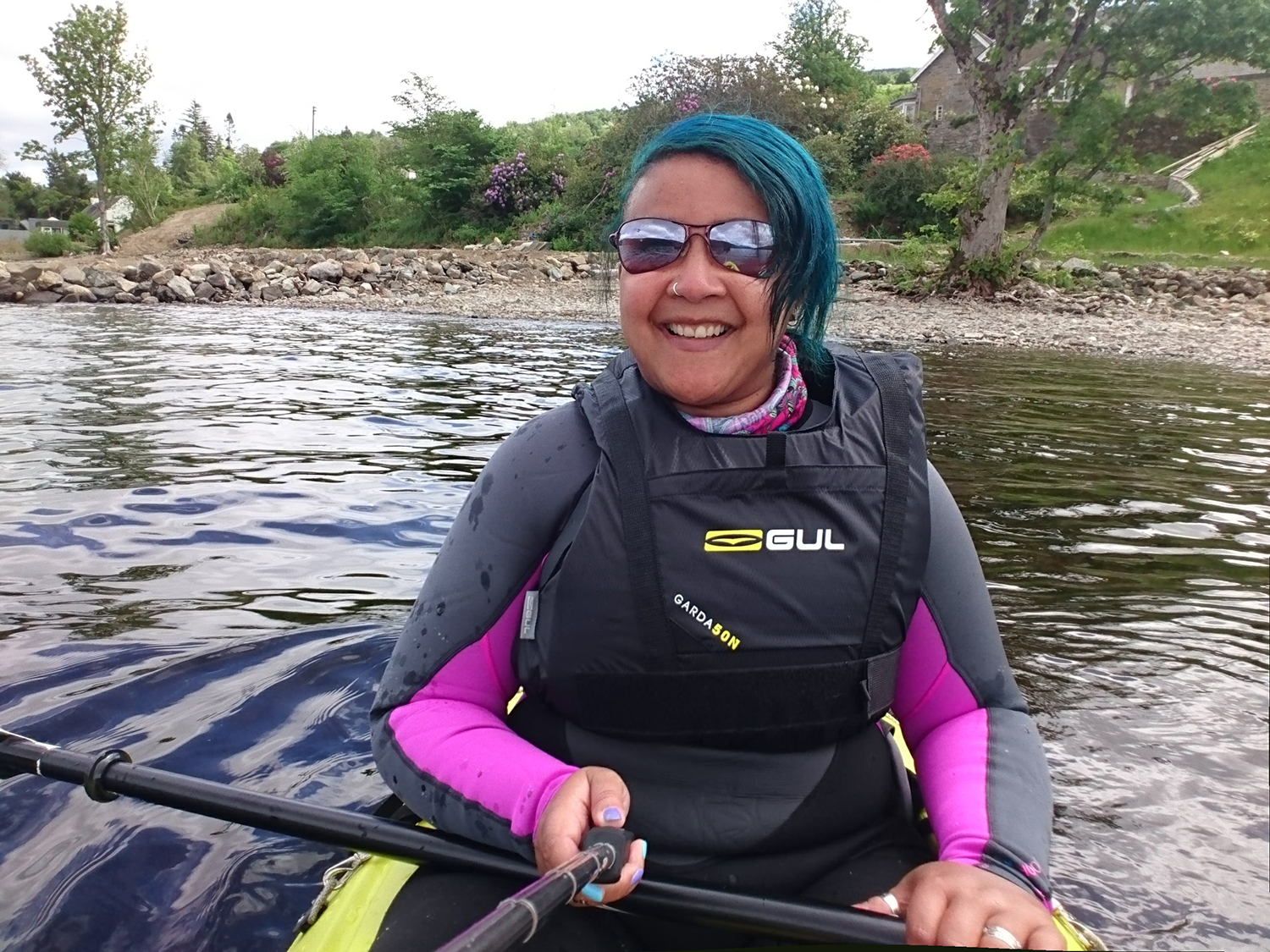
This change in focus means I am more present, and appreciate the time I’m spending outdoors. Anticipating and recongising the positive impact of what I’m doing makes for an affirming overall experience, making me feel much calmer and happier which ultimately leaves me feeling less stressed and more likely to sleep well.
3. Having something to look forward to
I always strive to purposely leave a few weekends each year free, with the intention of filling them up with spontaneous microadventures or to simply rest should I feel the need to, but it’s also good to plan outdoor activities in advance. Planned activities like big walks and weekends away means I’ve always got something to look forward to.

Whenever I get chance I’m up and out and doing something. Anything from a simple hours’ kayak hire at my local lake, through to long walks, camping trips, flying kites at the beach and road trips (read about my solo road trip and hike up Ben Lawers).
I’ve found that always having the promise of something enjoyable to look forward to is a great way of getting me through a mood slump, or a long week trapped inside the office, and it provides me with a greater sense of purpose and because I have increasingly chosen to plan things to do on my own, it’s provided a huge boost to my confidence.
The book Microadventures by Alistair Humphreys is great starting point if you need a hand in terms of planning things to do.
4. Spending time with like-minded, nurturing souls
Whilst I was at University I learned an important lesson, namely that if you surround yourself with difficult people, they drain you and can exert a negative influence over your life.
I’ve spent my whole adult life working hard to ensure that my friends and acquaintances share similar values to me, and since starting this blog, I’ve found that the values I hold most dear are twofold, relating to attitudes towards the natural world and spirituality. I feel most content when I spend time with those who share a similar adventurous spirit, and a mutual love for nature and being outdoors.

Once surrounded by others who also value their own wellbeing, I’ve found it’s easy to benefit from their positive influence. This is true not just in terms of my close friends, but it even goes as far as those that I follow and interact with on social media, the publications I choose to read and what I watch on the rare occasions when I switch the TV on.
When I have suffered from depression in the past my instinct has always been to withdraw and shut myself of, and whilst I’m robust enough to cope in a healthy way with negative experiences, I have a choice and the power to largely shape my own world, and choosing to fill it with like-minded souls has ultimately made me a happier person.
5. Self-care and learning to say no
As well as running this blog, I also do some freelance writing, consultancy work and have a full-time job. Any blogger will tell you that it’s not easy and that’s before you even factor in family demands, hobbies, exercise and a social life.
When my mum fell ill, my whole world came crashing down, and none of those other things mattered. All of my energy went into supporting my family and willing my mum to get better. Anyone in that kind of situation or in a long-term care role, will tell you that self-care is a critical component of supporting others.
Saying no to people, even cancelling the occasional commitment and doing what you need to do instead, even if it’s just to do nothing and rest, is sometimes necessary and you should never feel guilty for occasionally doing what’s necessary to look after yourself.

I am used to operating on the edge of exhaustion and am frequently told by my GP to take time off; like most people, I don’t have a magical to-do list pixie that will helpfully take over if I stop, that list will just continue growing, so I feel taking the time I’ve been told I need in order to rest would actually be counter productive.
With this kind of mindset, doing something as simple as taking half an hour out for a relaxing bath, was the sort of thing I never allowed myself to do, seeing it as wasting time I didn’t have. It has taken an incredible amount of resolve for me to turn around my mindset. In fact, finally accepting that a bit of downtime is not lazy, has probably been my biggest challenge.
I’ve been strict in implementing at least 1 night a week when I don’t get home from work and immediately start working again. I’ve started playing my guitar again and even reading books, because I have realised that taking time for myself isn’t lazy or selfish, it is just a necessary component of my wellbeing and I can’t look after others if I’m not also looking after myself.

6. Gratitude
After a difficult year, a Tweet from Claire at Wild Awake Mindfulness proved pivotal for me. She mentioned the word gratitude and it was like a light bulb going off in my head.
Of course being grateful when things are going well is easy, but my circumstances at the time meant instead of focusing on all the good things, I was doing what the human brain is prone to do without training, and I was instead focusing on all the bad things.
That simple word has since rarely left my mind, and no matter what I’m doing, whether I’m running late and stuck in traffic or feeling a bit hormonal and low, I now focus on all the amazing things I have in my life and it has transformed my thinking. No matter how bad things are, there are always things I can feel gratitude for and it gives me a warm, content and fuzzy feeling too.

Your path to finding your own version of happy
I’ve learned that happy people attract jealousy. Whilst I’m by no means smug nor do I frequently rattle on about how happy I am, inner peace is something that others can pick up on. So when you start out on your own journey to find happiness, bear in mind, not everyone will he happy for you…
My Burmese grandmother always used to tell me “within you is the power” and I still hold that as the sagest advice I’ve ever received.
I’m not ecstatically happy all the time, but I do feel more content and I now know the steps I need to take in order to restore balance when I do feel stressed, anxious or inexplicably down.
I believe that anyone who really wants to can find their own version of happy can do. My Burmese grandmother always used to tell me “within you is the power” and I still hold that as the sagest advice I’ve ever received.
Happiness starts with kindness and giving and is completed by living in a generally more mindful way
Happiness starts with kindness, giving and expressing gratitude and is completed by living in a generally more mindful way, paying minute attention to how your surroundings, the things you do and the people you spend time with make you feel.
Experiment and observe the impact they have on you mentally and physically and make a concerted effort to fill your life with more of the things that benefit you and you’ll soon be on your way to living a more fulfilling, happier life.

Resources
- Five steps to mental wellbeing – NHS Direct
- How to improve mental wellbeing – Mind
- How to Connect with Nature by Tristan Gooley
- The Benefits Of Spending More Time Outdoors In Winter
- Feral – Rewilding the Land, Sea and Human Life by George Monbiot
- Microadventures by Alistair Humphreys
- Is Mindfulness A Panacea Or Overhyped And Potentially Problematic?
Where to next?
- Find Your Happy – What I Discovered During My Year Long Search For Wellbeing
- Do Something New To Chase Away Those January Blues!
- Live Your Best Travel Life. How to Stop Making Excuses & Travel More
- 11 of The Best Sleeping Bags for Cold Weather Camping Trips
- WELLBEING | Witches Whispers From Routin Brig Waterfall, Scotland - April 25, 2024
- TRAVEL | The Little Coffee Bag Co. Delicious Coffee On The Go – Review - April 16, 2024
- NEWS | Easy Glamping With Easy Camp New Moonlight Spire Tipi Tent - April 15, 2024









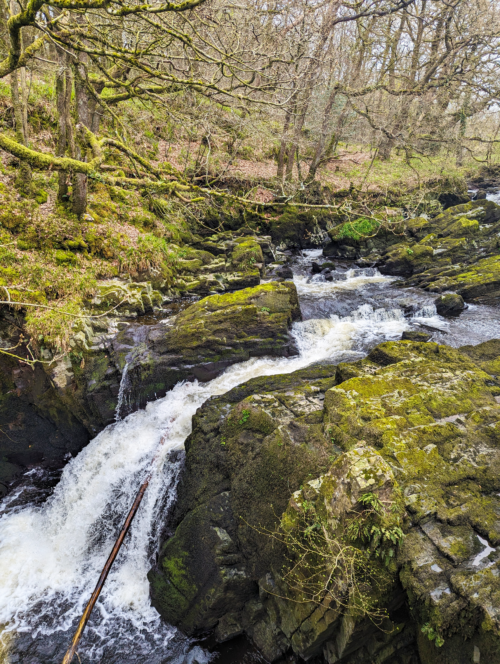
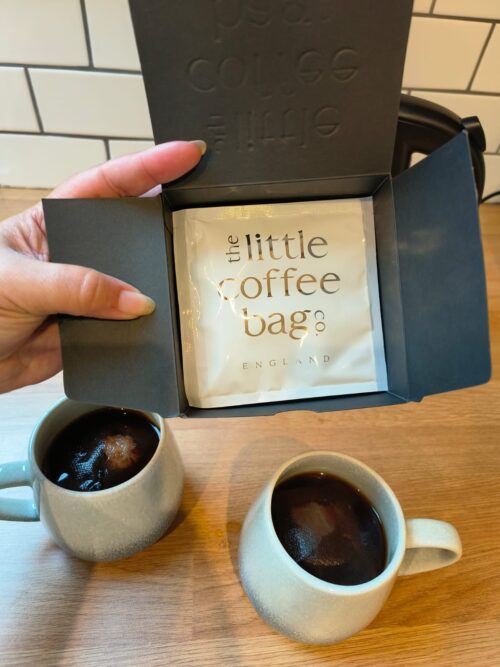



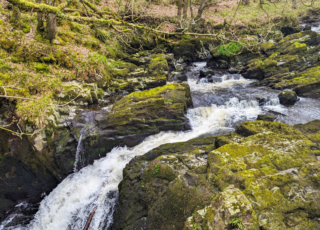

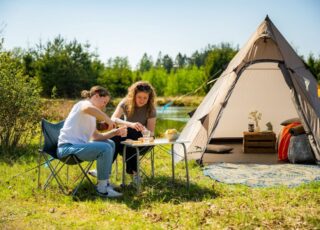

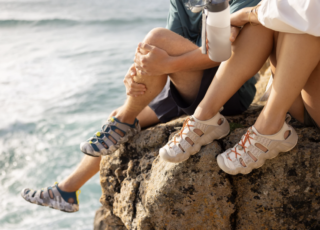
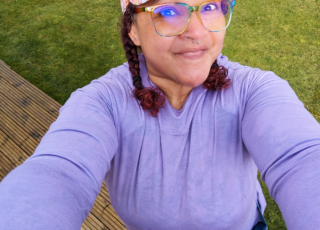
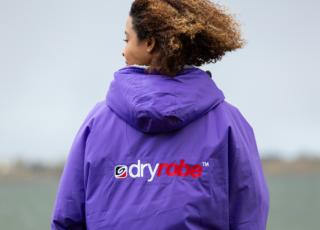
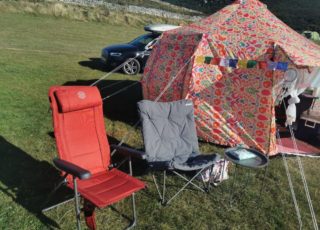
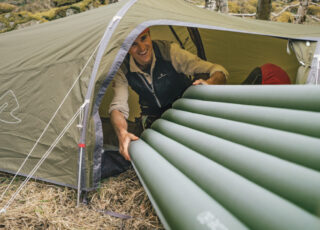
![CAMPING | Here’s How To Stay Warm In Your Tent – Warm Camping Tips [Updated 2024]](https://www.campingwithstyle.co.uk/wp-content/uploads/2024/02/shell0816_photorealistic_realistic_photo_of_the_inside_of_a_c_dd26c3c4-c779-4081-85b0-72e66a81b03b_1-320x230.png)
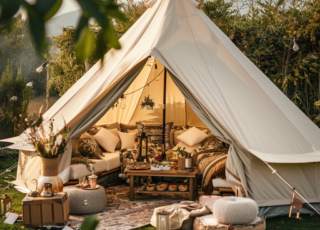
![GEAR | The Best Warm Sleeping Bags For Spring Camping Trips [Updated March 2024]](https://www.campingwithstyle.co.uk/wp-content/uploads/2024/02/10-best-warm-sleeping-bags-2024-320x230.png)



